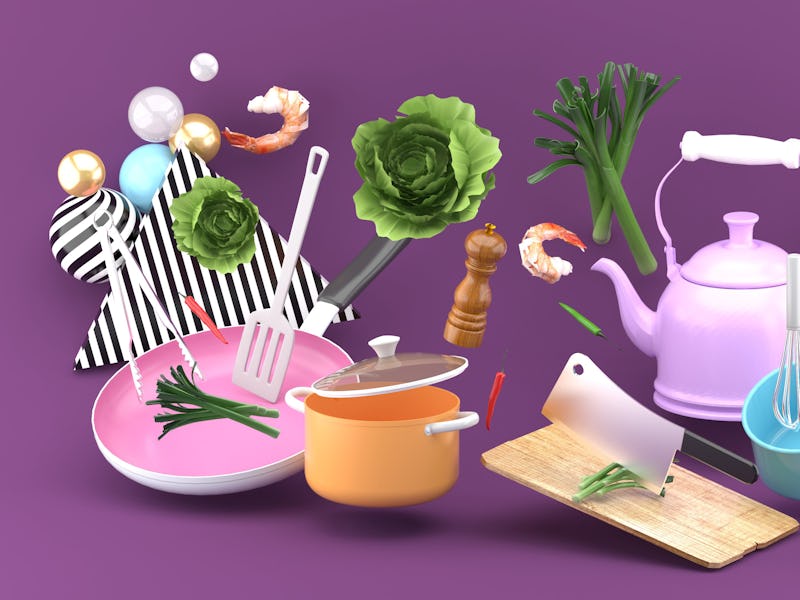Not all quarantine cooking is created equally when it comes to mental health
Why baking is better for your brain than microwaving a meal.

I’m not a very patient person, so I’ve never been a very good cook. My eggs stick to the pan; my chocolate chip cookies are wet in the middle. I’m also competitive, so I don’t love this part of myself. That’s why, like clockwork, I’ll make the declaration that this month I will learn how to be a better chef.
It usually doesn’t happen. But, remarkably, it is happening now, and I’m not alone. During the novel coronavirus pandemic, Americans are cooking at home on a scale that the New York Times reports hasn’t been seen in over 50 years. More remarkable yet — people are actually enjoying it.
It makes sense: We can’t go to restaurants and delivery costs add up. But a recent poll of 1,005 Americans found that, of the 54 percent of respondents who were cooking more than before the pandemic, 75 percent now felt more confident in the kitchen. Fifty-one percent of respondents announced they would continue to cook more once this is all over.
Studies indicate that all of this at-home cooking will likely make us healthier — and it might boost our mental health as well.
There’s good reason to think that cooking is good for our mental health, but it’s difficult to tease out exactly why that is, explains Nicole Farmer, a doctor and staff scientist at the National Institutes of Health Clinical Center. She is the first author of a 2017 review which found that, while evidence suggests cooking interventions may positively influence psychosocial outcomes, that evidence is still preliminary and limited.
Essentially, this means that more rigorous studies on cooking and its effect on mental health need to happen before researchers can definitely say cooking alleviates stress. (This hasn’t stopped some clinics and counselors from offering cooking classes as therapy tools for depression and anxiety.)
That said, both anecdotal evidence and research indicates something good is happening when we step into the kitchen.
“Why cooking can feel therapeutic is likely because of a combination of factors,” Farmer tells me. “Cooking is something that provides us the opportunity to address multiple facets of psychological well-being.”
For example, cooking gives you the opportunity to cook for others — in turn, providing the opportunity to improve and build relationships, Farmer explains. It gives us a feeling of autonomy and the opportunity to master something. It can give us a feeling of purpose and personal satisfaction.
Still, do we enjoy cooking so much because of the cooking behavior, because of the food itself?
“If we think about it from an evolutionary perspective, the behavior of cooking developed because it gave us access to cooked foods, and these gave us an evolutionary advantage,” Farmer says. “So it’s hard to tease it out, even from the root of cooking.”
The process of cooking brings in other factors: the exposure to smell and the visual appeal of food, which can entice some of the neurobiological pathways that promote well-being.
Still, Farmer points out that some research suggests that some cooking is likely more therapeutic than other forms of cooking. This comes down to how people define cooking.
“There are some studies that show the people who tend to define cooking as cooking from scratch often get more enjoyment and more fulfillment from cooking,” Farmer says. “This is a bit intuitive — hitting the microwave button doesn’t really involve you in the process. But asking these types of questions will help us better understand what parts of cooking are the most psychologically appealing.”
This means that baking a cake will likely provide a better psychological boost than preparing a blue box of mac & cheese. Preparing something that’s more involved, like a cake, also takes you out of your normal routine, Farmer says.
The fact that people are cooking more hasn’t surprised Farmer. What has surprised her is that as more and more restaurants open back up for takeout, people are still cooking at home.
“People are still really leaning into cooking, even though more options for food have become available,” Farmer reflects. “I think some of the research that we’ve looked into from the fields of occupational therapy helps explain why that is.”
This article was originally published on